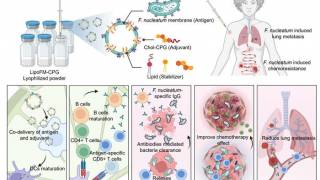World Cancer Day Says ''I Am and I Will'

The global cancer community commemorates World Cancer Day, on February 4, 2020, with the slogan ''I Am and I Will'.
In a press release, the Pan American Health Organization (PAHO) said ‘this campaign to call everyone, collectively and individually, to commit to strengthening actions aimed to reduce the impact of cancer.’
This call-to-action can be achieved by reducing cancer risk factors, detecting cancer at early stages with screening, and improving access to diagnosis, adequate treatment, and palliative care, says the PAHO.
In the Americas, cancer is the 2nd leading cause of death, where are an estimated 3.8 million people were newly diagnosed and 1.4 million people died from the disease in 2018.
Approximately, 57 percent of new cancer cases and 47 percent of cancer deaths occurred in people 69 years of age and younger.
Which is in the prime of their lives, says the PAHO.
The most frequently diagnosed types of cancer among men are prostate (21.7%), lung (9.5%), colorectal (8%), bladder (4.6%) and stomach (2.9%).
Among women, the types of cancer with the highest incidence are breast (25.2%), lung (8.5%), colorectal (8.2%), thyroid (5.4 %) and cervical (3.9%).
Approximately 72,000 women were diagnosed with cervical cancer in 2018 and almost 34,000 died from it in the Region of the Americas.
Cervical cancer is preventable through Human Papillomavirus (HPV) vaccination and also with screening and treatment of precancerous lesions.
Also, cervical cancer can be effectively treated if diagnosed in its early stages.
A recent example is the success the UK has achieved in reducing cervical cancer cases.
According to a new report published by Public Health England (PHE) on January 22, 2020, 10 years after the HPV vaccination program was introduced in the UK, no HPV16/18 infections were detected in 16-18-year-old women.
The PHE said in a press release ‘this shows the HPV program has succeeded in delivering both direct and indirect cancer protection to women.’
The US Centers for Disease Control and Prevention says HPV is a common sexually transmitted infection, with HPV acquisition generally occurring soon after first sexual activity.
Although most sexually active adults have been exposed to HPV, new infections can occur with new sex partners.
In the USA, the Gardasil 9 vaccine is the only approved HPV vaccine.
To make this cancer-prevention vaccine more available, during October 2018, the US Food and Drug Administration expanded the approved age range for Gardasil 9 use to 9 through 45 years of age.
Cancer prevention vaccine news is published by Vax-Before-Cancer.
Our Trust Standards: Medical Advisory Committee























